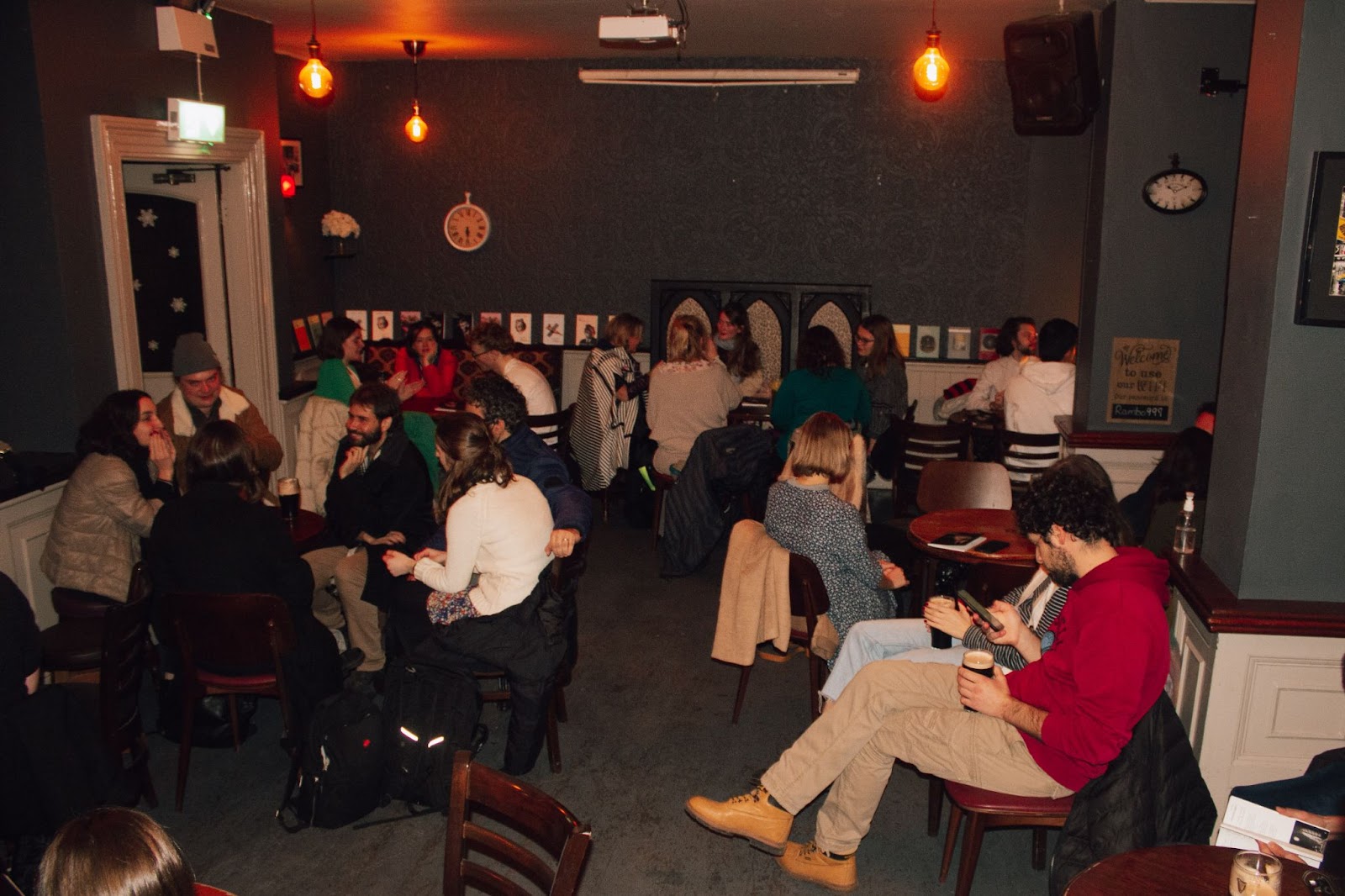
There is a famous Italian saying that goes “traduttore, traditore” which translates to “translation is treason”. It is based on the belief that translators, converting a text from one language to another, betray the true sense of the original text. This argument however, fails to honour the unique flare that a translator can add to original text – something which the contributors of Trinity’s Journal of Literary Translation showcase.
On November 16th, tucked away in the attic of Chaplin’s pub, a group of language and literature lovers gathered together to celebrate the launch of Volume X, Issue I of JoLT. Throughout the evening, 15 contributors read aloud their respective translations to a room of listeners who probably wished to be polyglots by the end. Ranging from Russian to Greek and Spanish to Portuguese, the languages that filled the room were many and, apart from the invading sounds of the outer world, existing within those four brick walls on that crisp Tuesday evening felt nothing less than magical.
This semester, contributions were centred around the theme of “ellipsis”, which editor Cian Dunne tells The University Times was “partly inspired by certain writers like Emily Dickinson, Virginia Woolf, and in particular, Samuel Beckett”. Each contributor took this theme and chose to translate works where the ellipsis makes an explicit appearance, whilst others translated works in which the presence of the ellipsis is more implicit, embedded within the theme of the text.
Alongside these texts the issue featured beautiful artwork from student contributors and external artists who returned this year to decorate the pages of this semester’s issue. Dunne walked us through the process of matching artwork to translation, saying “Often, it was a single image from a poem which aligned with a particular artwork … [and] at other times, the translated text coalesced with an artwork thematically”. From photography to painting to watercolour, it is as though each piece is in conversation with their accompanying translations, as they mutually enhance one another.
Although the majority of the evening’s attendees spoke two to three languages, it felt as though we were able to understand much more. The passion of each reader reverberated around the room as they spoke, practically transgressing the language barriers. Whether it was a translation of an Irish poem into Portuguese or a Chinese story into English, each contributor was not simply reiterating the sentiments of each original text, but was creating something anew.
As for the next issue, Dunne tells us that it is early days and that no theme has been decided as of yet, however he and deputy editor Oisín Morrin are most certainly reserving the right to decline any submissions which feature three consecutive dots, he playfully adds, “because, well, we are just sick of the sight of them at this stage”.






